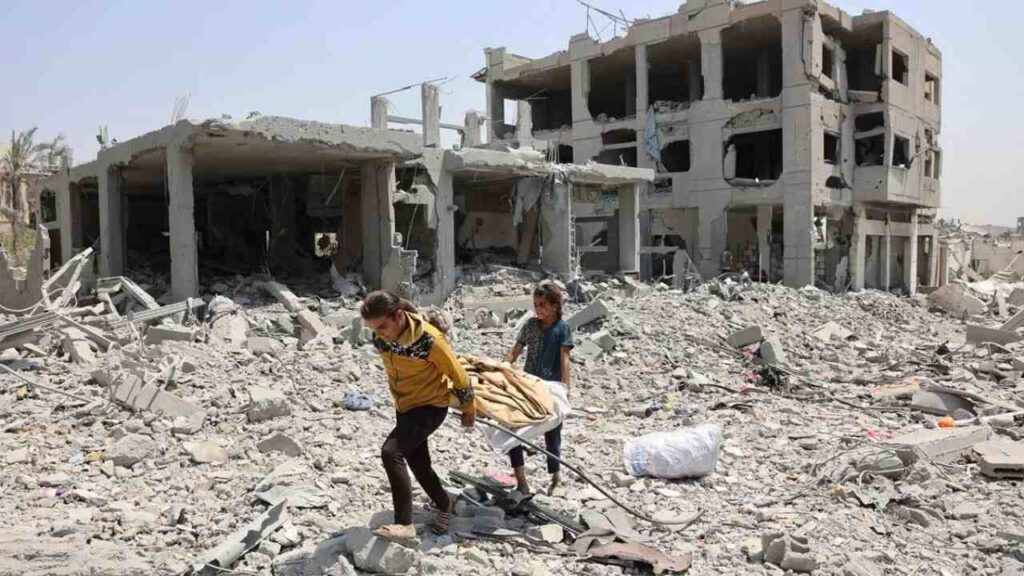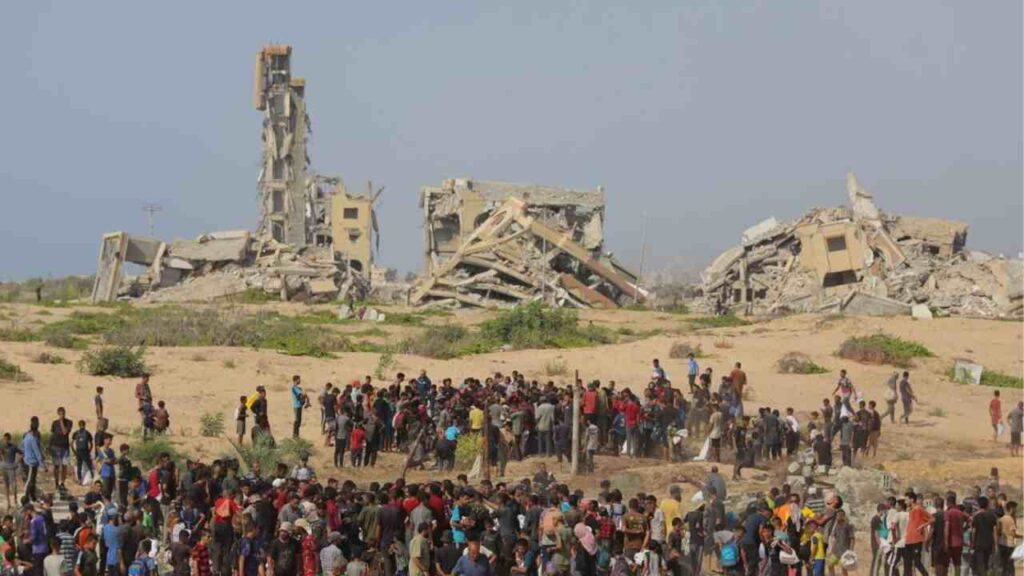State Department Halts Humanitarian Program Amid Security Concerns, Drawing International Health Crisis Into Focus
The Trump administration has suspended a humanitarian program that provided medical visas for severely injured and sick children from Gaza, following pressure from conservative activist Laura Loomer and congressional inquiries about potential security risks.
Immediate Action Following Social Media Campaign
The State Department announced it would halt all visitor visas for people from Gaza pending a comprehensive review, just one day after Loomer posted videos on social media platform X questioning how children from Gaza had obtained visas for medical treatment in the United States.
The decision affects what the State Department described as “a small number of temporary medical-humanitarian visas” that had been issued in recent days to facilitate urgent medical care for children who could not receive adequate treatment in Gaza’s war-damaged healthcare system.

Secretary of State Cites Security Concerns
Secretary of State Marco Rubio defended the decision during an appearance on CBS’s “Face the Nation,” stating that the action came after “outreach from multiple congressional offices asking questions about it.”
Rubio acknowledged that only a small number of visas had been issued to children requiring medical assistance, noting that the children were accompanied by adults. However, he raised concerns about the organizations facilitating these medical evacuations.
“Some of the organizations bragging about and involved in acquiring these visas have strong links to terrorist groups like Hamas,” Rubio asserted, though he provided no evidence or named specific organizations.
The Secretary of State announced that the administration would “pause this program and reevaluate how those visas are being vetted and what relationship, if any, has there been by these organizations to the process of acquiring those visas.”
Conservative Activist’s Influence
Loomer’s social media posts on Friday showed children from Gaza arriving in San Francisco and Houston earlier this month for medical treatment through an organization called HEAL Palestine. She characterized their presence as contradicting the administration’s stated position on not accepting Palestinian refugees.
“Despite the US saying we are not accepting Palestinian ‘refugees’ into the United States under the Trump administration, these people from Gaza were able to travel to the US,” Loomer stated in her posts.
She labeled the situation a “national security threat” and demanded accountability, calling for the dismissal of whoever authorized the visas. Her posts tagged prominent political figures including Trump, Vice President JD Vance, Secretary Rubio, Texas Governor Greg Abbott, and California Governor Gavin Newsom.
While Trump has publicly downplayed Loomer’s influence on his administration, several officials have reportedly left or been removed from their positions shortly after she criticized them publicly.
Humanitarian Organization Responds
HEAL Palestine expressed distress over the State Department’s decision in an official statement. The organization describes itself as “an American humanitarian nonprofit organization delivering urgent aid and medical care to children in Palestine.”
According to the group, it facilitates the temporary relocation of “severely injured children” to the United States for medical treatments unavailable in their home territory. Following treatment, both the children and any accompanying family members return to the Middle East.
“This is a medical treatment program, not a refugee resettlement program,” the organization emphasized.
A Facebook post from HEAL Palestine last Thursday documented their ongoing efforts, showing a photograph of a boy from Gaza traveling via Egypt to St. Louis for treatment. The post indicated he was “our 15th evacuated child arriving in the US in the last two weeks.”

Gaza’s Medical Crisis
The visa suspension occurs against the backdrop of Gaza’s severe healthcare crisis, resulting from over 22 months of warfare between Israel and Hamas. The conflict has heavily damaged or destroyed much of the territory’s medical infrastructure.
World Health Organization Director-General Tedros Adhanom Ghebreyesus highlighted the scope of the crisis on social media Wednesday, stating that “more than 14,800 patients still need lifesaving medical care that is not available in Gaza.” He called on additional countries to provide support for medical evacuations.
Pre-War Medical Evacuation Context
The WHO’s published description of Gaza’s medical evacuation process reveals the dramatic change in circumstances. Before the current conflict began, 50 to 100 patients left Gaza daily for medical treatment elsewhere. The WHO submits patient lists to Israeli authorities for security clearance as part of the evacuation process.
The organization has called for Israeli authorities to approve medical evacuations at a higher rate to address the growing humanitarian need.
Current Healthcare Conditions
United Nations reports indicate that medicines and basic healthcare supplies remain critically low throughout Gaza. This shortage persists after Israel imposed a complete aid blockade on the territory of over 2 million people for more than 10 weeks earlier this year.
“Ceasefire! Peace is the best medicine,” Tedros added in his Wednesday social media statement, emphasizing that lasting healthcare solutions require an end to the conflict.
Administrative Response and Transparency
The State Department declined to provide specific details about the suspended program on Sunday, including the total number of visas granted or whether Loomer’s social media campaign directly influenced the decision to halt the humanitarian program.
The administration’s review process will examine both the vetting procedures for medical visa applicants and the organizations involved in facilitating these medical evacuations.
Implications for Humanitarian Policy
The suspension raises questions about balancing national security concerns with humanitarian obligations, particularly regarding medical care for children caught in conflict zones. The decision affects a program specifically designed to provide temporary medical treatment rather than permanent resettlement.
As the Trump administration conducts its review, thousands of patients in Gaza continue to require medical care that remains unavailable due to the territory’s damaged healthcare infrastructure, highlighting the ongoing tension between security protocols and humanitarian needs.






